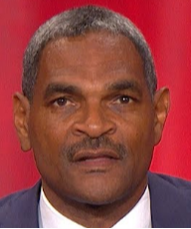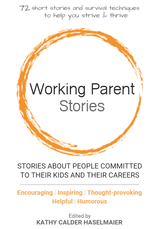|
Pointer to a Forbes article by Mary Beth Ferrante Yesterday Forbes published a great article called How To Survive A Two Breadwinner Household. We love the article because it promotes many of the same ideas we promote and aligns with many of the topics we've covered recently including the following (and many more):
Thank you, MaryBeth Ferrante, for helping other dual income couples recognize the challenges so we can be sure our families thrive and we contribute to a brighter future in so many ways.
0 Comments
Inspired by an article in TIME magazine Becoming a Stay at Home Dad (SAHD) might feel like the right move for some men. But even if your partner is on-board and ready to become the sole financial contributor within the family, a decision to leave the workforce, even for just a few years, may set your career back in enough ways that you are likely to regret the decision down the road (assuming you think you'll want to reenter the workforce in the future). Last month we wrote about the financial downside to career breaks in the story Do The Math. Later we came across an article in TIME magazine that described other, greater risks, specifically experienced when a man leaves his job to care for his family for an extended period of time. The article, Don't Let Your Husband Be a Stay-At-Home Dad, outlines many of the risks associated with leaving the workforce temporarily and states, "Research suggests the penalty may even be greater for men who temporarily exit the workforce." Every family is different and there is no single career or parenting model that works for every situation. Each of us needs to do what we think is best given our unique situations. The Time article reminds us that there are ramifications to every decision we make, just like we outlined in another recent story, Choices and Consequences.
Submitted by "Experienced Mom" Recently a parent, who gave up her career 18 years ago to focus on her children full-time, shared a frustration with me; her teenaged son is only interested in himself. Even as significant events swirl around him and she tries to explain their relevance to him, his interest in anything beyond himself remains pretty much non-existant. I bit my tongue as I thought about what she'd said. It didn't surprise me for two reasons;
When we balance family and work we make it very clear to our children that multiple priorities can be managed at the same time. Sometimes our children's needs are our highest priority and sometimes other things demand our attention. Our children learn, by watching us, that they are part of a world that is bigger than themselves and that their needs don't always deserve the most attention. This realization will help them better understand the world, their role within it, and how they can make valuable contributions. Related story:
Inspired by Maurice Cheeks Have you ever tried something new or encouraged someone else to try something new? If so, you know that new experiences can be nerve-racking. When we try new things, they rarely go perfectly at first, and nervous feelings can cause us to stumble. Many of us can recall at least one situation where our nerves got the best of us and we choked. When that happens, people around us can help us keep our mistakes in perspective; they remind us that stumbling is normal and they encourage us to try again and expect better results next time. These experiences can help us grow, build self-confidence, and become more compassionate people. Parenthood is filled with these opportunities; opportunities to try new things and opportunities to encourage others who are trying new things. Some parents who provide encouragement and compassion provide powerful examples for the rest of us. Apparently that happened back in April of 2003 when working parent Maurice Cheeks, now a Basketball Hall of Famer and then the head coach for the Portland Trailblazers, helped a 13-year-old girl out because, as he said, ''I just saw a little girl in trouble and I went to help her. I'm a father. I have two kids myself. I'd have wanted someone to help them if they could.'' If you're not familiar with this story, take two minutes and watch what happened (or here from a better angle, but lower quality video). You won't regret it. It's a great reminder to all of us that there is a lot more power in building people up than tearing them down. Thank you for the reminder, Maurice. And congratulations on your recent induction into the Basketball Hall of Fame. Happy Ending: The girl who sang in the video is all grown up and pursuing a career in acting.
Similar story:
Opportunity to share your experience, influence corporate policy, and earn some money UPDATE Sep 30, 2018: Specifically seeking women of color at this time University researchers want to talk with pregnant employees (and their partners), and they're willing to pay up to US$155 depending on your eligibility and participation level. We're enthused about this study because these researchers, led by Kelsie Daigle, share our passion for learning about parental leave, new-parent sleep, working parents, breastfeeding in the workplace, and returning to work. If you're interested, participating, you can contact Kelsie directly via email. (One option is to earn US$30 for particating in a one-hour interview.) You are eligible to participate if you meet the following criteria:
Read stories about parental leave:
Inspired by a Freakonomics interview with Indra Nooyi Recently, while listening to a Freakonomics podcast called "A Conversation with PepsiCo C.E.O. Indra Nooyi" something was said that got me thinking. Indra was describing her daughter's school and how they hosted a weekly "class coffee with mothers" on Wednesday mornings at 9:00 am. Because she worked, it wasn't practical for her to attend most of the gatherings. Apparently her daughter highlighted each of her absences by providing a list of the mothers who had attended each week. Indra was clever (she calls it "coping"); she eventually called the school and asked for a list of mothers who didn't attend regularly and provided that list to her daughter in rebuttal. That story instantly took me back to the years when my husband and I franticly juggled classroom volunteering with our careers. I enjoyed volunteering and learned a lot about my kids, their teachers, their friends and their learning. But even today it elicits feelings of stress, and I find myself questioning whether or not it was worth it. But I know exactly why I did it; I was afraid that my kids' teachers would treat them differently if I didn't. (Who knows whether I was right or wrong?!) I've heard that some parents pressure teachers to let them in the classroom, and that not all teachers want parents in the classroom. (It has to be a challenge to manage all those volunteer slots while garnering parental approval at the same time.) I'd guess that some parents are very helpful and others may create more work than they're worth. If we truly want our daughters to have as many opportunities as our sons, our sons to learn how to be supportive spouses, and everyone to be paid fairly, we need to stop and think about how we're asking our moms and dads (aka role models) to spend their time. We appear to be succeeding in terms of educating future mothers in the US; more women than men are now graduating from college. But we haven't yet figured out how to ensure they succeed at the same rate as men once they're pursuing careers; fewer mothers than fathers work outside the home, and many mothers who do work are underemployed by choice. We could pile on teachers and ask them to add even more to their overflowing plates as we try to figure out how to help our daughters achieve more career success, or better yet, let's help them out with this challenge. My suggestion: launch a #dadsinschools effort, meaning that we mothers should stop volunteering in schools and instead encourage dads (and only dads) to take on the classroom volunteer duties. This could change things. Profoundly. It would enable moms to focus more on their careers, and it would enable dads to learn more about their kids. And it might even help us, as a society, to understand how important we really think it is for parents to volunteer in the classroom.
The idea of a children's book about working parents entered my mind the other day, and the title "Why Daddy Works" popped into my head. (My husband laughed out loud when I suggested it.) The funny thing is, the book already exists, and it's a relatively new one (2017). In fact, the Google search turned up the following, somewhat suprising, children's book titles:
This list was a lot more sobering than I expected. Which caused me to Google "Why Mommy Works". That search produced this list:
Apparently that last "book" isn't a book at all. Instead it is a comedy podcast. The word sobering would be an interesting descriptor here too ;) I don't remember our kids ever asking why we worked. Maybe it's because they never knew anything different. (And that reminds me of the recent story Transitioning to Daycare which provides insights from a former daycare teacher about a good age for your child to start going to daycare.) I had a whole 'nuther story in mind when I started this one, but figure you're busy, so decided this is enough info for one day.
Helpful advice from Miranda A parent wrapping up a parental leave, and getting ready to head back to work, reached out to an online forum as she prepared to transition her 5-month-old to daycare. She was looking for general advice and specifically wanted to know if it was OK to drop her baby off in PJs.
Lucky for her, Miranda, a former daycare teacher, responded with these valuable words of wisdom:
|
The StoriesArchives
March 2022
Categories
All
|
Photos from barnimages.com, marcoverch, truewonder, donnierayjones, marcoverch, shixart1985, Gustavo Devito, edenpictures, nan palmero, quapan, The Pumpkin Theory, bark, opassande, Semtrio, Ivan Radic (CC BY 2.0), verchmarco (CC BY 2.0), Didriks, shawnzrossi, shixart1985 (CC BY 2.0), madprime, marksmorton, CT Arzneimittel GmbH, NwongPR, franchiseopportunitiesphotos, anotherlunch.com, jdlasica, wuestenigel, Frinthy, romanboed, Doris Tichelaar, quinn.anya, A_Peach, VisitLakeland, MEDION Pressestelle, Darren Wilkinson, bratislavskysamospravnykraj, Anthony Quintano, Danielle Scott, pockethifi, Bridgette Rehg, Martin Pettitt, PersonalCreations.com, wuestenigel, Thad Zajdowicz, archer10 (Dennis) 139M Views, Infomastern, beltz6, The National Guard, futurestreet, daveynin, OIST (Okinawa Institute of Science and Technology), Rinet IT, shixart1985, mikecogh, JeepersMedia, Ryan Polei | www.ryanpolei.com, Jake.Christopher., aleksandrajovovich, thepeachpeddler, wwward0, flossyflotsam, Got Credit, Senado Federal, Corvair Owner, lookcatalog, moodboardphotography, dejankrsmanovic, Carine fel, ElleFlorio, {Guerrilla Futures | Jason Tester}, greg westfall., Arlington County, mariaronnaluna, quinn.anya, wuestenigel, Tayloright, insatiablemunch, MrJamesBaker, Scorius, Alan Light, Monkey Mash Button, www.audio-luci-store.it, wohlford, Vivian Chen [陳培雯], okchomeseller, BoldContent, Ivan Radic, verchmarco, donnierayjones, Czar Hey, US Department of Education, Andrew Milligan Sumo, Michel Curi, anotherlunch.com, ProFlowers.com, Cultural viewpoints from around the world, alubavin, yourbestdigs, Rod Waddington, Tayloright, Wonder woman0731, yourbestdigs, donald judge, Thomas Leth-Olsen, Infinity Studio, shixart1985, wuestenigel, francesbean, Roger Blackwell, MrJamesBaker, Luca Nebuloni, MFer Photography, erinw519, boellstiftung, North Carolina National Guard, A m o r e Caterina, MrJamesBaker, bellaellaboutique, Free For Commercial Use (FFC), Prayitno / Thank you for (12 millions +) view, wuestenigel, Matt From London, MadFishDigital, Kompentenzzentrum Frau und Beruf, mikecogh, CreditDebitPro, marciadotcom, Mr.Sai, _steffen


















 RSS Feed
RSS Feed